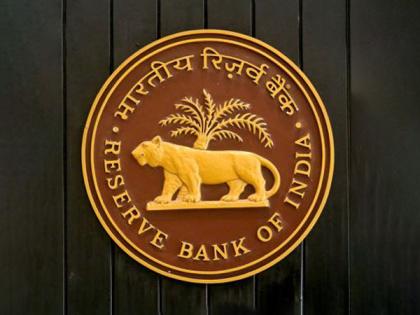Six states raise Rs 10,750 crore through fresh and re-issue of govt securities
By ANI | Updated: July 22, 2025 20:34 IST2025-07-22T20:25:54+5:302025-07-22T20:34:23+5:30
New Delhi [India], July 22 : Six Indian states have accepted State Government Securities (SGS), totalling Rs 10,750 crore, ...

Six states raise Rs 10,750 crore through fresh and re-issue of govt securities
New Delhi [India], July 22 : Six Indian states have accepted State Government Securities (SGS), totalling Rs 10,750 crore, according to the data released on Tuesday by the Reserve Bank of India (RBI).
Among the six states, Bihar has accepted Rs 2000 crore at a yield rate of 7.01 per cent for a duration of 12 years, Kerala (Rs 1000 crore at 7.10 per cent for 20 years), Manipur (Rs 250 crore at the rate of 7.10 per cent for 15 years), Tamil Nadu (Rs 1000 crore at 7.07 per cent for 30 years), and West Bengal (Rs 2500 crore at 7.11 per cent for 19 years).
Maharashtra, on the other hand, has re-issued four securities worth Rs 1000 crore each for different time durations. The first Rs 1,000 crore security at a yield rate of 7.12 per cent, maturing in 2047. Another Rs 1000 crore, which matured at the rate of 7.09, has been re-issued at the rate of 7.13 per cent, maturing in 2048.
The state has reissued third Rs 1000 crore security at 7.15 per cent, maturing in 2049.
Maharashtra has reissued fourth Rs 1000 crore security at 7.16 per cent, maturing in 2050, which was originally issued at the rate of 7.09 per cent.
Earlier, on July 9, seven Indian states raised a total of Rs 13,300 crore in another round of auction of State Government Securities (SGS).
Bond prices and yields have an inverse relationship. When bond yields (interest rates) increase, bond prices tend to decrease, and vice versa.
This is because a bond's yield is calculated by dividing its coupon payment by its current price. If the price of a bond decreases, its yield will increase to compensate for the lower price, and if the price increases, the yield will decrease.
All participating states accepted the full amount they had notified for the auction on July 9.
The RBI conducted this yield-based auction as part of its regular borrowing calendar for states, helping them meet their capital expenditure and fiscal needs.
The data showed that investor demand remained strong across different tenors, and all states successfully raised their intended amounts without any under-subscription.
These auctions are a key means for states to fund infrastructure and development projects while maintaining fiscal discipline within the broader macroeconomic framework established by the central bank.
Disclaimer: This post has been auto-published from an agency feed without any modifications to the text and has not been reviewed by an editor
Open in app